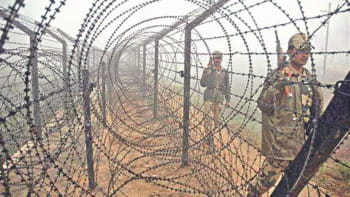Businesses voice concerns over law and order

Businesspeople have voiced concerns about the state of law and order in industrial areas, saying it has not improved to the level they anticipated despite the interim government being in office for three and a half months.
At the same time, they highlighted that the energy and power deficit is making things extremely difficult for businesses and seriously impeding production.
"Instability in industries is not desirable in any way, so there should be a roadmap with a specific timeframe for improving the law-and-order situation," said Abdul Muktadir, managing director of Incepta Pharmaceuticals.
He was addressing a business conference, titled "Private Sector Outlook: Expectations and Priorities", organised by the Dhaka Chamber of Commerce and Industry (DCCI) at the Pan Pacific Sonargaon Dhaka yesterday.
Muktadir said although Bangladesh recently endured difficult times, some good initiatives have been taken that will yield positive results.
"We have been affected by the high import duty rates on various products and small traders are going through a difficult situation," he added.
Echoing those sentiments, Ahsan Khan Chowdhury, chairman and chief executive officer of Pran-RFL group, said businesses will develop if the law-and-order situation improves.
He claimed he was unable to open letters of credit for raw material imports as per demand, disrupting employment and production.
He suggested increasing the production of the agricultural sector by embracing new technologies and proposed issuing partial bonds to facilitate raw material imports.
He also opined that it is necessary to reduce the interest rate on loans considering the prevailing situation.
Salehuddin Ahmed, finance advisor, said the kind of corruption that had taken place over the last 15 years, especially in the economic sector, is unimaginable.
"It has permeated every corner of society," he said, adding that the interim government is continuing its efforts to overcome the issue, but it may take some more time.
Ahmed also mentioned that inflation, which has been hovering above 9 percent for nearly two years, is a big challenge. However, he was optimistic that the situation could be overcome by bringing stability to the foreign exchange reserves and setting satisfactory interest rates.
He further said that he had received some complaints about the National Board of Revenue from private-sector enterprises, adding that all laws should be business-friendly.
Sk Bashir Uddin, commerce advisor, said coordination between the government and private sector is necessary to improve the law-and-order situation.
He expressed hope that the situation would improve quickly.
He also sought more dialogues on when it would be reasonable for Bangladesh to graduate from least developed country (LDC) status as the country will be deprived of several benefits in the post-LDC era.
Bangladesh is currently set to graduate from the list of LDCs in November 2026.
"There is no alternative to increasing our capacity and expanding trade in the international market after LDC transition," Bashir said.
Selim RF Hussain, chairman of the Association of Bankers Bangladesh, said the government has not yet taken effective initiatives to improve the law-and-order situation, but it is important to control it quickly.
However, the government has done quite well in the economic sector, he added.
"Only a contractionary monetary policy is not enough to control inflation. Strict monitoring of market management, including stopping extortion in the supply chain, must be ensured," Hussain said.
Javed Akhtar, president of the Foreign Investors' Chamber of Commerce and Industry, said credibility, continuity and capacity are absolutely essential for foreign investment.
Considering the country's impending graduation from LDC status, he called on the interim government to take any decision on that topic with the country's capabilities in mind.
Abdul Hai Sarker, chairman of the Bangladesh Association of Banks, said the interim government needs to ensure the safety of entrepreneurs and improve the law-and-order situation in industrial zones.
Shawkat Aziz Russell, president of the Bangladesh Textile Mills Association, stressed the need to reduce business operating costs, especially those incurred due to corruption.
"Since we are not producing our own gas through exploration, our industries are being run with high-priced gas. As a result, our capacity is decreasing," he added.
Mohammad Hatem, president of the Bangladesh Knitwear Manufacturers and Exporters Association, said a zero-tolerance policy must be adopted to improve the law-and-order situation.
"Due to a lack of gas, we are unable to manufacture fabrics. As a result, additional money is being spent on importing such products," he added.
He also called for keeping trade organisations free of politics.
Ashraf Ahmed, president of the DCCI, said it is necessary to gradually reduce the policy rate from the beginning of next year in order to control inflation.
He also highlighted the importance of reducing government expenditure, improving market management, and increasing surveillance to prevent extortion in product management.
He also said the central bank should emphasise keeping the exchange rate of US dollars close to the prevailing rate in order to bring stability to the foreign exchange market.


 For all latest news, follow The Daily Star's Google News channel.
For all latest news, follow The Daily Star's Google News channel. 



Comments